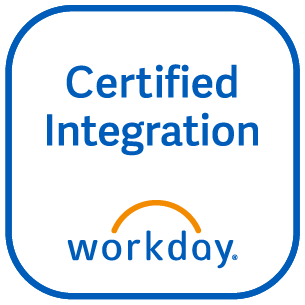In theory, AI agents thrive with perfect inputs. But compensation is messy.
Key topics
Everyone’s talking about how powerful AI agents are becoming. But in compensation, power isn’t enough.
When every decision impacts someone's livelihood and millions in company spend, speed and smarts aren't enough. You need judgment.
AI in comp must be dependable, measured, and aligned with your policies, data, and business logic.
That’s where contextual AI agents come in.
What is a contextual AI agent?
A contextual AI agent doesn’t just answer questions—it acts like a trusted compensation leader.
It gathers context, applies rules, understands the “why” behind decisions, and communicates clearly.
Examples:
- Reviews an offer and recommends changes based on your internal guidelines
- Spots an outlier in your pay bands and explains the cause
- Drafts a first version of your comp philosophy based on inputs across documents and systems
These aren’t chatbot tasks. They require context, consistency, and operational rigor—just like your team.
Context is the catch
In theory, agents thrive with perfect inputs.
But comp is messy.
Key data lives across spreadsheets, HRIS systems, inboxes, or sometimes in your head. You might get an urgent offer request with no level, no job code, and no rationale—only that a hiring manager “already promised the number.”
In that moment, you don’t retrieve a number; you weigh intent, infer missing signals, balance competing norms, and make a judgment call.
For agents to be useful in comp, they need to do the same. That’s where context engineering comes in: designing systems that surface the right information, at the right time, so agents can use reason the same way comp pros do.
What compensation leaders want from AI
Comp teams want agents to be brilliant and 100% accurate.
That means:
- Asking the right questions when data is missing
- Applying policy rules exactly the way a human would
- Explaining decisions clearly to stakeholders
- Being consistent, no matter how requests are phrased
- Knowing when to escalate (executive comp, term grants, etc.)
This is called constrained agency: the agent has room to act, but stays within the boundaries you define, like a well-trained analyst, not a rogue intern.
What AI should and shouldn’t do in comp
Do this:
✅ Review pay decisions against policy and highlight exceptions
✅ Benchmark roles using verified, real-time market data
✅ Write clear business explanations for complex offers
✅ Keep compensation workflows on track (think reminders, nudges, recaps)
Don’t do this:
❌ Replace strategic judgment in high-stakes negotiations
❌ Interpret ambiguous edge cases without escalation
❌ Operate on scraped, unvetted data
❌ Automate decisions without human visibility
You are the conductor
Compensation is too complex and important to run on autopilot.
AI agents can gather data, flag issues, and recommend next steps, but only you can bring the full context: the business goals, tradeoffs, and human impact.
Agents assist, you decide.
How will you do comp differently?

.svg)

.webp)
.webp)
.webp)
